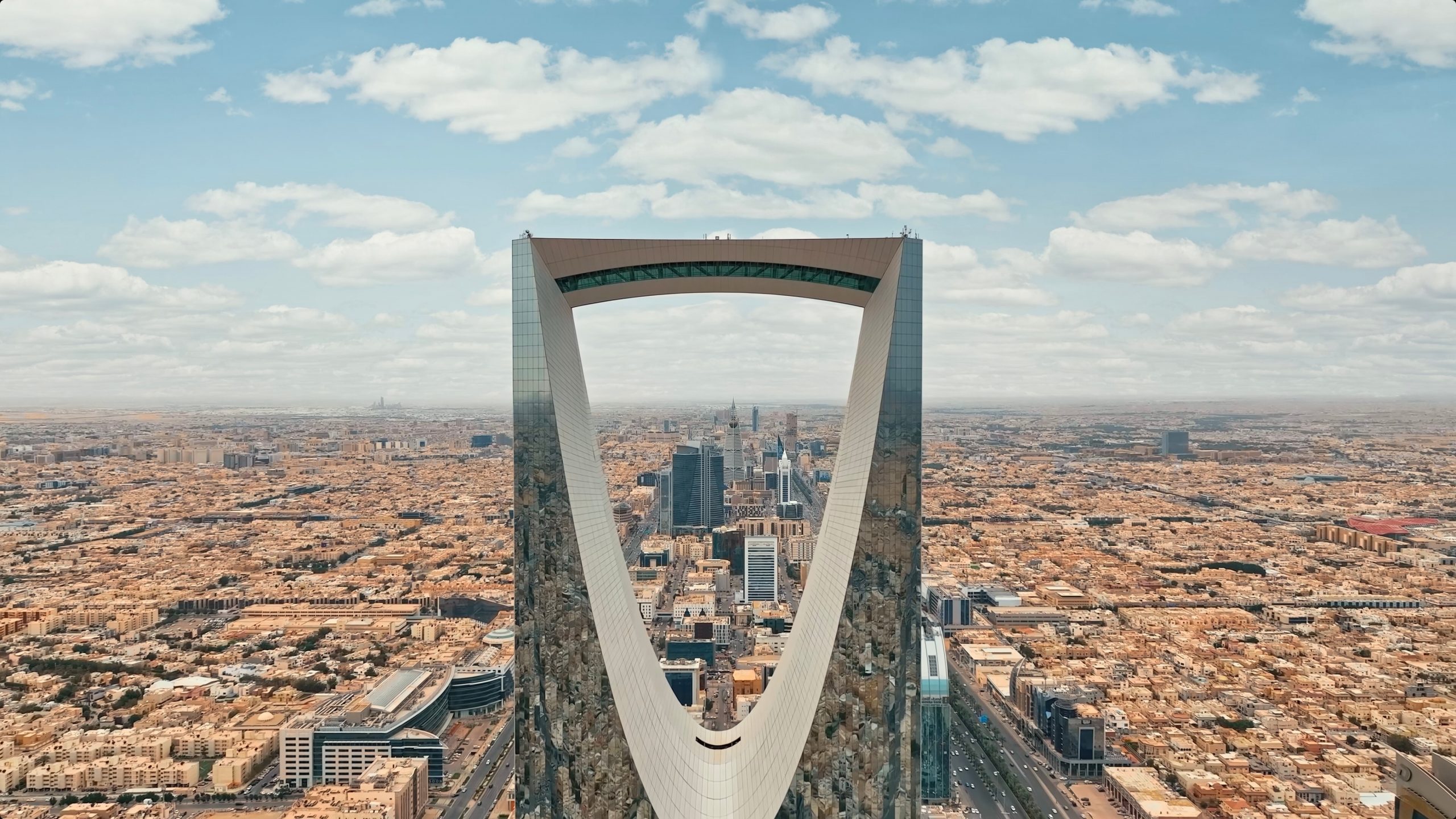Since the announcement of Vision 2030, Saudi’s economic progress has further accelerated the ease of doing business. Recently, IMF announced that the Kingdom is slated to be the second-fastest-growing economy, after India, in 2025 with an upgraded forecast for Saudi Arabia’s economic growth in 2025 from 5.50% to 6%.
Concurrently, international companies are increasingly directing their attention to Saudi Arabia to capitalize on the endless sea of opportunities across various sectors. This is further highlighted in our “2024 Saudi Market Entry Report”, launched earlier this year, which indicated a four-fold increase in the speed at which companies are entering the market in 2024 compared to 2018.
Entering Saudi Arabia, for many firms, is motivated by a sense of urgency as it offers unparalleled access to growth and expansion, helping companies entering the Kingdom gain a competitive edge in the market.
Saudi Arabia Sees An Unstoppable Economic Progress
It is commonly expected for an economy that is in the midst of a transformative journey to face a prolonged dip in its ability to jump to the next chapter of growth. However, Saudi’s story shows us otherwise – their conviction and determination to accelerate development in every phase of its roadmap to 2030 has resulted in economic gains that are attracting increased global investments.
Take the pandemic as an example. As early as 2021, the country’s non-oil GDP reached pre-Covid-19 levels, and by the end of the fourth quarter of the year 2022, the Kingdom’s GDP recorded an 11% increase from the same period in 2019. Through large-scale economic reforms, digitalization, and diversification plans expedited by Vision 2030, the country was able to not only maintain reform momentum but also lead the region’s recovery efforts.
Fast-forward to today, a sector such as tourism, which experienced one of the biggest slowdowns across the globe, was not only able to resume its growth trajectory but also went ahead to cross the initial set goal of achieving 100 million visitors 7 years early, in 2023.
Consistent with its Vision 2030, the country is developing a robust transport and logistics sector, laying the groundwork for innovation to counter future supply chain disruptions. Strengthened by its industrial growth, the Kingdom emerged as the key gateway to the region and beyond, shaping up to be the choice destination for international firms doing business across borders. Glimpsing the opportunity, UK-based Unipart Group recently expanded to Saudi Arabia via AstroLabs to contribute to the development of its logistics sector.
Unipart was motivated by the lucrative market opportunity in the Kingdom, as do many other logistics and construction companies, owing to its pro-business environment, favorable tax regime, and greater access to a large pool of skilled workers.
Giga projects also contribute to enhancing industrialization and connectivity, as well as accelerating the evolution of future-ready domestic supply chains. Such grand-scale development projects provide the main thrust of the ongoing construction boom nationwide, fostering employment opportunities. The construction sector is one of the fastest-growing in the county and is set to grow annually by up to 4.5% between 2023 and 2026.
Saudi Arabia’s recent strategic synergies and joint ventures with other countries increase trade integration, and knowledge transfers, eventually translating to mutually shared gains and positioning Saudi Arabia as a global leader in innovation and business.
This was evident last year with the signing of 47 Memorandums of Understanding (MoUs) between Saudi Arabia and India, which signifies a commitment to innovation and collaboration between the two countries and presents a golden opportunity for Indian companies eyeing future expansion in Saudi.
Moreover, last year, during the visit of the South Korean President, Yoon Suk Yeol, to the Kingdom, 52 key agreements were announced at the Saudi-Korean Investment Forum held in October of 2023. These investment agreements span various verticals, including investment, trade, energy, and the automotive industry. Looking ahead, Saudi Arabia is poised to attract future foreign investments as it arises as a global driver of cutting-edge technology, innovation, and economic opportunities.
Private Sector Investment Drives Non-Oil Economy Growth
Saudi’s strong economic progress is backed by a substantial increase in private sector investments in line with the diversification efforts to lessen dependence on oil-generated revenues. The plan starts to pay dividends, with the non-oil economy now constituting 50% of the country’s GDP, equivalent to SAR 1.7 trillion (453 billion) at constant prices.
Now, non-oil GDP is set to make up 65% of the country’s GDP by 2030. This accomplishment marks a significant milestone in the country’s growth trajectory, further cementing the country among the top economies conducive to global investments.
The momentum carries forward to 2024, as revealed in the Kingdom’s Purchasing Managers’ Index. It showed that the Kingdom’s non-oil private sector registered a robust improvement in the first quarter (Q1) of 2024, as output reached a six-month high.
The favorable government policies have boosted market confidence, leading to an increase in new business registrations. Furthermore, in Q1 of 2024, 104,000 commercial registrations were recorded, up 59% from a year ago, bringing the total number of registrations to over 1.45 million across the Kingdom. It also comes as the Ministry of Commerce issued 65,363 permits during the same period.
Embracing Economic Diversification for Sustainable Growth
This paradigm shift is driven by an emphasis on sustainable energy sources, boosting initiatives even more.
The country’s target of Net Zero by 2060 is supported by a series of flagship, governmental-led efforts. That includes the National Green Initiative launched in 2021, which aims to support increased sustainability practices, improve carbon emissions reductions, foster job and investment opportunities, as well as boost climate resilience and food security.
Opportunities remain evident for international companies offering innovative solutions in the sustainability sphere; among them is RSK, a global solutions-led consultancy. The company, which is a member of the AstroLabs expansion network, is the sustainability partner for giga project clients such as Red Sea Global, Amaala, and the Royal Commission.
Saudi’s vision to transform its economy involves a multi-pronged strategy; one aspect focuses on undertaking structural reforms across existing sectors for accelerated transformation, while the other involves building new sectors from the ground up. Sectors like mining, tourism, sports, and entertainment, which are viewed as the country’s newest economic frontiers ripe for investments, unlocking access to external private capital.
For instance, Saudi Arabia aims to increase private sector investments in the mining industry to 171 billion Saudi riyals ($45.6 billion) by 2030 and boost its contribution to the nation’s GDP to $64 billion by 2030 from a current $17 billion. The largeness of the market opportunity opens the door for fresh investment opportunities and lucrative growth prospects for downstream beneficiation and strengthens the country as a sought-after destination for industry leaders.
Meanwhile, the ongoing development in the tourism sector has also led to an increase in many new entrants across different strategic sectors, including entertainment, where event organization firms’ numbers rose 34% year on year in Q1 of this year.
Boosted by a private sector-led economy and government support, the Kingdom is increasingly making a lasting impact on the global stage, with Vision 2030 serving as the guiding light behind the positive Saudi economic growth trajectory.
Ready to make the move to Saudi? Contact our team to streamline your operations.

